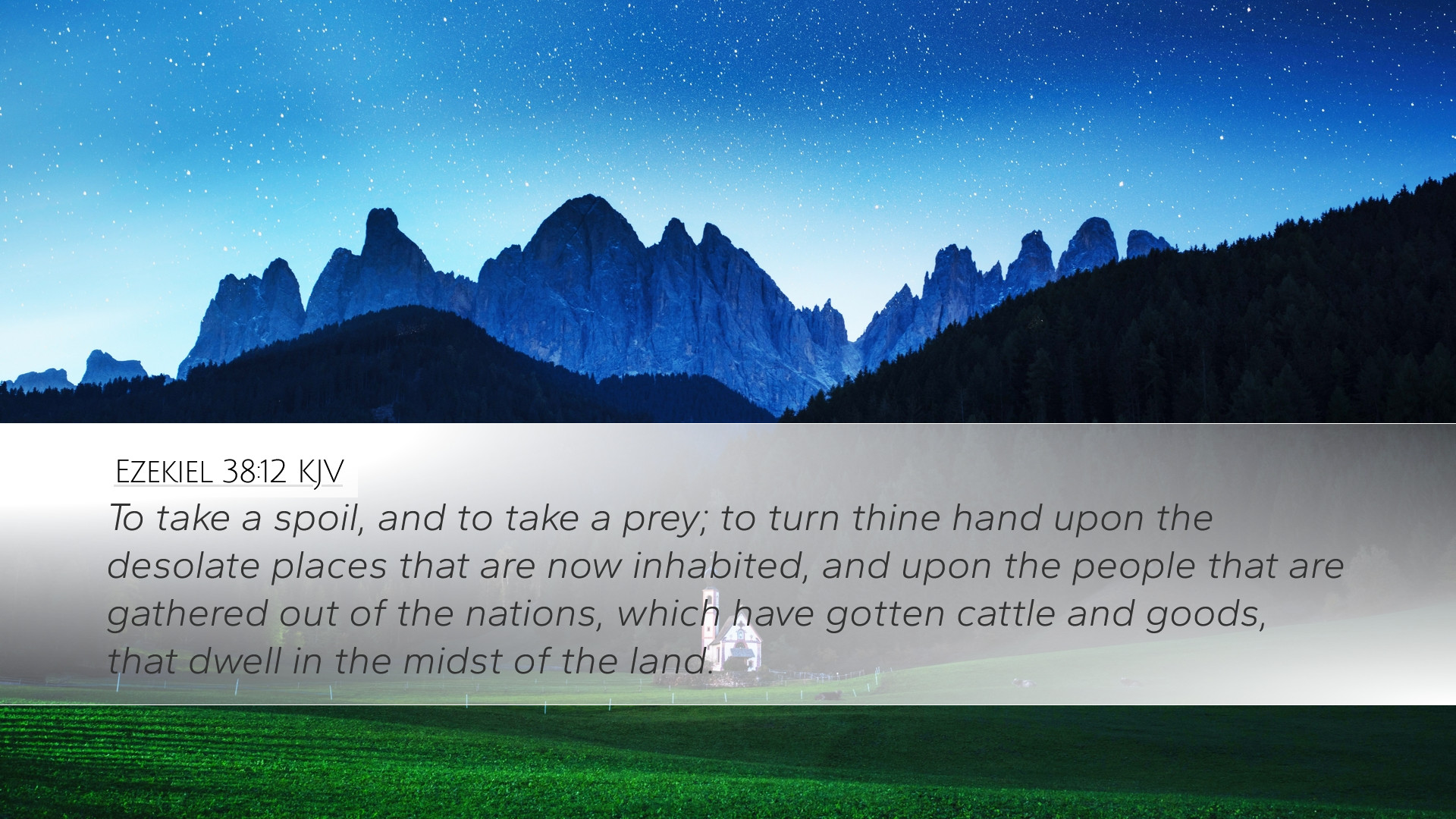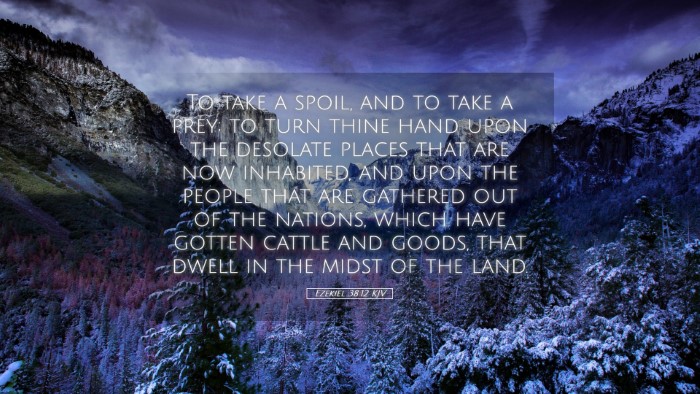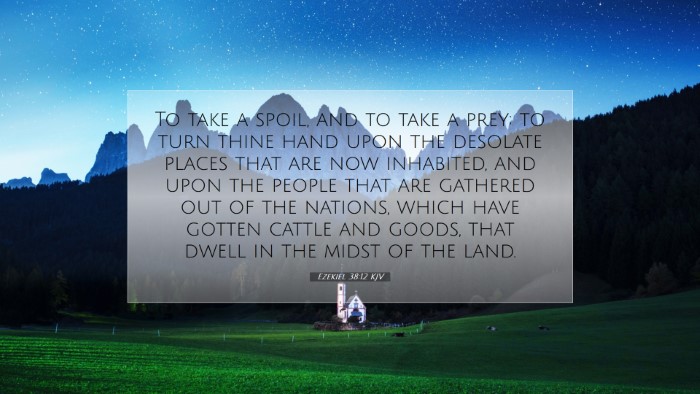Commentary on Ezekiel 38:12
Ezekiel 38:12: "To take a spoil, and to take a prey; to turn thine hand upon the desolate places that are now inhabited, and upon the people that are gathered out of the nations, which have gotten cattle and goods, that dwell in the midst of the land."
Contextual Overview
This verse is situated in a prophetic context where Ezekiel is speaking of a future invasion of Israel, exemplified by Gog of the land of Magog—a leader from the north who represents hostile forces against God's people. The text references the motivations behind this aggression, primarily the pursuit of wealth and resources.
Exegesis and Theological Implications
The phrase ""to take a spoil, and to take a prey"" reflects the greed and covetousness that often propels nations into conflict. Commentators such as Matthew Henry note that this reflects a sinful longing for material gain over adherence to divine principles. The desire for spoils illustrates humanity's fallen nature, which leads to exploitation and conflict.
Albert Barnes points out the historic context where Israel, once desolate, finds itself now populated and enriched following restoration—a sign of God's favor. This change invites greed and aggression from those who oppose God's people.
Analysis of Key Phrases
- "To take a spoil, and to take a prey": This language evokes imagery of war and conquest, alerting readers to the mercenary motives behind military actions. It suggests a ruthless exploitation of the vulnerable.
- "Desolate places that are now inhabited": This denotes a transformation, where areas once seen as worthless are now viewed as places of opportunity and wealth. This reflects God's redemptive power.
- "People gathered out of the nations": This phrase represents the regathering of Israel from the diaspora, emphasizing the theme of restoration and the fulfillment of God's covenant promises.
- "That dwell in the midst of the land": Indicates a settled, secure existence in the land God promised, contrasting with the instability and fear that the invaders aim to instill.
Commentary Insights
Adam Clarke provides an insightful look into the geopolitical implications of this prophecy. He notes that the attack on Israel is motivated by envy and greed, with Gog’s intent being not just to conquer but to destabilize what God has established. The phrase “to turn thine hand” signifies both a physical invasion and a metaphorical act of judgment against the people of God.
Beyond historical considerations, this verse remains relevant as a typology for spiritual warfare. The forces of evil consistently seek to annihilate God’s work, just as Gog aims to dismantle the restored Israel. This invites reflection on modern applications for pastoral ministry, underscoring the need for vigilance against spiritual complacency and moral failings.
Modern Applications
For pastors and theologians, Ezekiel 38:12 serves as a cautionary tale about the dynamics of power, greed, and ethical leadership. Matthew Henry would encourage the church to remain steadfast in righteousness, resisting the allure of worldly gain at the expense of spiritual integrity.
Furthermore, the restoration of Israel symbolizes hope; it affirms that God can turn desolation into abundance. This offers a dual message: a warning against the paths of moral decay and a promise of restoration for those who trust in God’s provision.
Conclusion
Ezekiel 38:12 encapsulates themes of conflict driven by greed, the transformation from desolation to restoration, and the ongoing spiritual warfare that persists in the lives of believers. As Albert Barnes notes, awareness and vigilance against such external and internal evils are paramount. This verse, richly packed with implications, invites continued reflection on the nature of God’s covenant, the reality of opposition, and the hope found in divine restoration.


